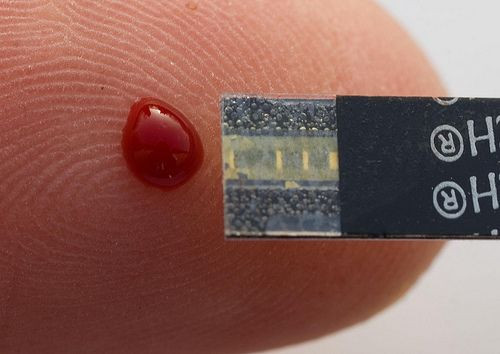Biochip Can Recognize Sepsis Quickly

Physicians will be able to analyze blood results and recognize sepsis within 20 minutes using a biochip, according to researchers who developed the chip at the Fraunhofer Institute for Physical Measurement Techniques IPM in Freiburg, Germany.
"All the doctor has to do is place the sample in the apparatus and wait for the results," said Dr. Albrecht Brandenburg, group manager at the Institute.
Sepsis, commonly known as 'blood poisoning,' is a life threatening illness, caused by patients’ own immune system going into overdrive.
Sepsis immune response causes small blood clots to form, blocking blood flow to vital organs, resulting in organ failure. In the United States about 750,000 people get severe sepsis each year, and more than 200,000 die from it. Those at risk include older adults, hospital and surgery patients, and people with impaired immune system, according to the Mayo Clinic.
The sepsis detecting biochip works by separating a blood sample into various antibody detecting catcher molecule compartments. Patients suffering from sepsis have immune responses that produce certain proteins depending on the cause; the biochip is able to detect different types of proteins produced.
Researchers pointed out that if certain protein properties are present in the blood, the antibodies can detect them, doctors can know what proteins have been caught due the properties.
The chip is able to know if proteins have been caught by being rinsed in antibody solution, which has been marked with a fluorescent dye.
"These bind to the proteins – meaning antibodies, protein and marked antibodies are all firmly linked to each other and to the chip's surface. When the chip is illuminated, the dye lights up." The apparatus sees lots of little illuminated dots that show the protein was in the blood. If the patient is healthy, however, the chip remains dark,” said Dr. Manuel Kemmler of the Institute.
The markers on the chip can allow doctors important information about the severity and cause of the illness.
"We predict that in the long run, with production on a large enough scale, each chip will cost no more than one euro," Brandenburg said.
Researchers concluded the biochip can possibly be used for other conditions such as heart attacks and cancers.



























